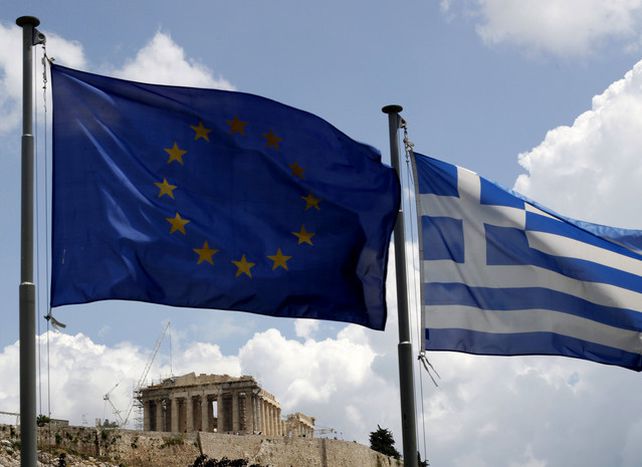
Greek roots and a European way of thinking
Published on
How are Greek EU civil servants dealing with the Greek issue?
Sunday 25th, it's election day in Greece. What will the Greeks working in Brussels do? Do they support the European policy regarding Greece? Austerity? Do they question the European approach?
Being realistic about the current situation
The Greek expats I met closely keep up with Greek news and politics. They seemed touched and concerned by the current socio-economic situation and the political state of affairs. They are in contact with friends and family living in Greece and go visit when they can. When Dimitris, who works at the EU Commission, looks back in 2004 when he was back in Greece, he laughs and says:
"I had the impression I was poor when I saw Greek people driving beautiful expensive cars! I felt happy and proud in a way because I thought "It's good, Greece is a nice place to live". But even then I knew it wasn't the real economy."
The Greeks I interviewed confirmed that many problems haven't been resolved yet. They evoked the public sector which lacks transparency and should be rationalized. Manouela, also a civil servant at the EU Commission, declares that she couldn't access better professional opportunities that correspond to her level of qualifications "because of favouritism." She explains that in the public sector, "favorites of the political system" are hired. "Even when these people don't have the diplomas, they still get the job" and "the public sector is a mess" acknowledges Dimitris. They wish Tsipras will push this touchy reform but he wants to "hire in the public sector and renationalize companies" so instead they are just hoping he's lying.
Two weeks ago, a Greek bar owner in Brussels told me that "tax evasion is a national sport". Dimitris endorsed this statement: "tax collection is a problem, people who can avoid taxes do it, those who can't, employees for instance, are taxed". The feeling of injustice regarding taxation seems to be quite strong because the richer you are the easier it is to bypass the system.
Looking for an alternative to austerity
Although the Greeks I met are favourable to some reforms in their country, they don't inevitably support austerity and they even doubt of the current economic orientation impulsed by the EU. "But it doesn't challenge my pro-European commitment" says Manouela. For Ariadni, intern at the EU Commission, "doubting the European economic orientation does not mean doubting the pro-European commitment. I don't think only Greeks doubt the European economic orientation".
I have to say I was particularly happy to meet people inside the institutions that seem to hope for something else than austerity. Themis, intern in EU affairs, has a federalist position: "austerity alone doesn't stand for Europe". To him, Europe cannot only be about "liberal markets" because "cutting down on welfare is alienating European identity". Most of my interviewees evoked alternative solutions like "investment" plans, "discussing debt restructuring as a European thing, not just a Greek thing" even a referendum to allow people to decide instead of any particular party...
That explains why some Greeks working in EU affairs (and other nationalities as well!) support Syriza. For Themis, "Syriza could be a good solution... but we realize there is no good party, we'll choose the lesser of two evils". Real change can only be carried by a "strong voice" according to Manouela. "When it's social-democracy, the message just isn't strong enough". Some of her collegues working at the Commission are strongly in favour of Syriza. However, Syriza is a coalition of 13 parties, "it isn't homogeneous" so uncertainty persists as to what kind of policy will be implemented in the end. She adds that in Syriza's electorate "you have people who blame the EU but you also meet people who think the EU isn't bold enough and should push more reforms and you have anti-capitalists next to bankers who hope Syriza will reduce taxes. Everyone is very confused".
Feeling European
It seems hard to know what the population thinks about the EU. "There is a general negative perception about the EU, but still everybody puts the blame first on the previous governments" says Ariadni. For Themis, the Greeks are still in majority pro-European, "that's what the last surveys say". Anyway, only the Greeks are entitled to decide what is best for Greece. "It isn't normal that EU politicians give their opinion on our election!" one of my interviewees angrily said on the phone. His flight for Greece was already booked early next morning since Greeks can only vote in Greece (and all of them expressed their extreme irritation on that matter).
Who knows, maybe Greece can blow a wind of change on Europe. As one Greek MEP said: "the Greeks are not just tenants, we are co-owners of Europe." That's why us Europeans will also be interested in what you have to say today. Happy election day!



